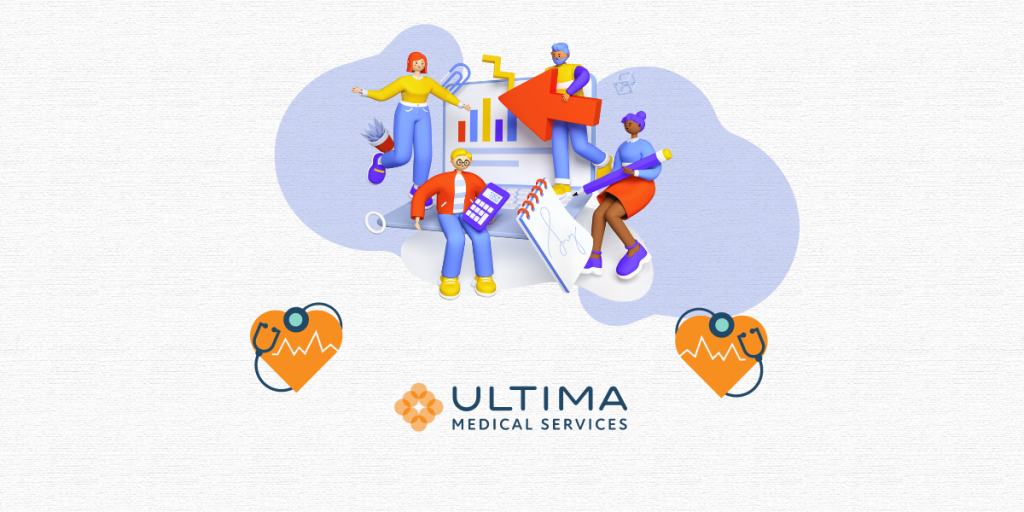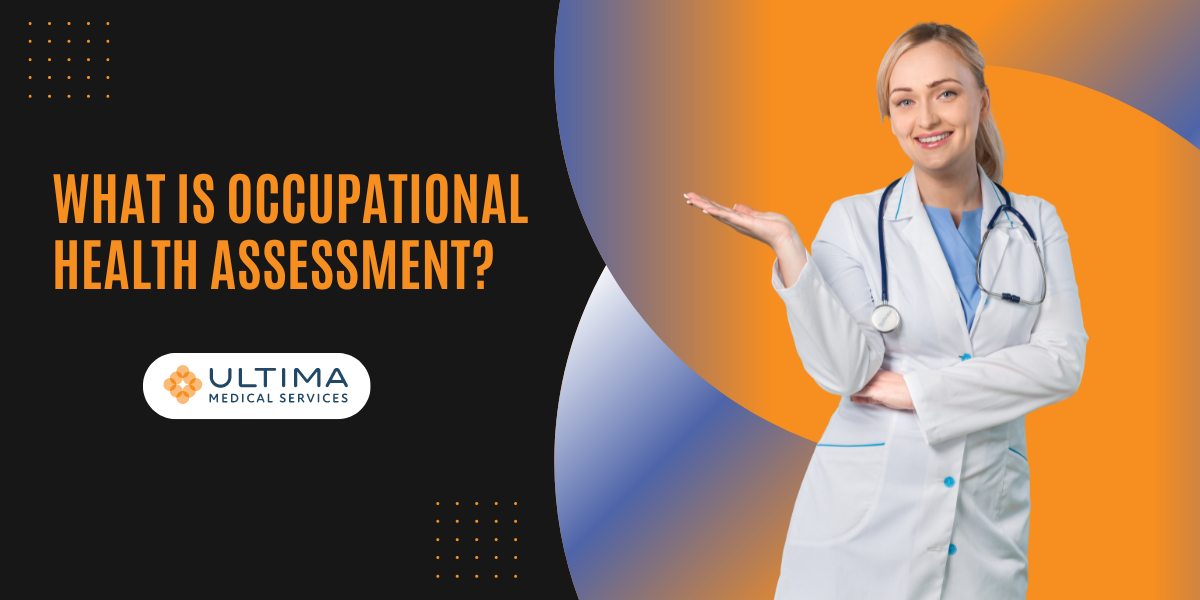In today’s fast-paced and demanding work environments, the health and safety of employees are of paramount importance. Employers have a legal and ethical responsibility to protect their workers from health risks and ensure a safe working environment. One crucial tool in achieving this goal is the occupational health assessment. In this comprehensive guide, we will delve deep into what occupational health assessment entails, its importance, components, benefits, and real-world examples.
Occupational Health Assessment
Occupational health assessment or occupational medical assessment is a comprehensive and systematic process that focuses on evaluating an employee’s health in the context of their specific job duties and the environment in which they work. This assessment aims to identify and mitigate potential health risks. These risks may arise from the nature of their work. To prevent work-related illnesses and injuries, promote overall well-being, and provide necessary support for employees returning to work after illness or injury. It involves a thorough examination of various factors. For example physical health, mental well-being, job tasks, workplace conditions, and any potential hazards that could impact the employee’s health and safety.
The Importance of Occupational Health Assessment
The importance of occupational health assessment cannot be overstated. It serves multiple crucial functions that benefit both employees and employers alike:
Legal Compliance
Employers are legally required to provide a safe working environment and protect employees from health hazards. Occupational health assessments help ensure compliance with health and safety regulations, reducing the risk of legal issues and enforcement actions.
Prevention of ill Health
By identifying and addressing potential health risks early on, occupational health assessments contribute significantly to preventing work-related illnesses and injuries. This proactive approach helps create a safer and healthier work environment for all employees.
Promotion of Well-being
Occupational health assessments play a vital role in promoting the physical and mental well-being of employees. By addressing health concerns, providing necessary support, and offering accommodations when needed, these assessments contribute to a healthier and happier workforce.
Return to Work Support
In cases where employees have been absent due to illness or injury, occupational health assessments play a crucial role in facilitating their return to work. By assessing their fitness for work, recommending necessary adjustments, and providing support during the transition, these assessments help employees resume their duties safely and effectively.
Types of Occupational Health Assessment
There are several types of occupational health assessments each also serves specific purposes to ensure the well-being of employees and promote a safe work environment. Here are the key types of occupational health assessments:
Pre-employment Assessments
These assessments are conducted before hiring a new employee to evaluate their suitability for a specific role. They may include medical examinations, health questionnaires, and tests to assess the individual’s physical and mental health in relation to the job requirements. Pre-employment assessments help employers make informed decisions about hiring candidates who can perform their job duties safely and effectively.
For example, every law enforcement officer in British Columbia must take a pre-employment medical exam to ensure they are healthy and fit enough to perform required duties.
Fitness for Work Assessments
Fitness for work assessments are carried out periodically to evaluate employees’ fitness to perform their job duties safely and effectively. These assessments are particularly important for roles that involve physical or safety-critical tasks. They may include medical examinations, functional assessments, and evaluations of any health conditions that could impact job performance. Fitness for work assessments ensure that employees are physically and mentally capable of carrying out their responsibilities without putting themselves or others at risk.
For example A candidate applying for an oil rig or drilling platform job undergoes an offshore medical exam, including physical examinations and tests to ensure they can safely perform manual labor tasks.
Return to Work a Assessments
These assessments are designed to assist employees in returning to work after a period of illness or injury. They involve evaluating the employee’s current health status, assessing their ability to resume work duties, and determining any necessary accommodations or adjustments needed for a successful return to work. Return to work assessments also help manage sickness absence by identifying factors contributing to the absence and providing support to facilitate the employee’s recovery and reintegration into the workplace.
Health Surveillance Assessments
Health surveillance assessments are conducted to monitor employees’ health in high-risk work environments where they may be exposed to hazardous substances, noise, vibration, or other occupational hazards. These assessments aim to detect early signs of work-related health issues, such as respiratory problems, hearing loss, or musculoskeletal disorders. Health surveillance assessments often involve regular medical examinations, screenings, and monitoring of exposure levels to ensure employee health and safety.

Role of Occupational Health Professionals
Occupational health professionals play a crucial role in conducting occupational health assessments and ensuring the well-being of employees in the workplace. Furthermore, these professionals, including doctors, nurses, advisers, and technicians, collaborate with employers to create a safe working environment and promote employee health. Here is an overview of their role:
Qualified Professionals
Occupational health assessments are conducted by qualified professionals such as doctors, nurses, advisers, and technicians. These professionals have expertise in assessing employees’ health in relation to their job roles and workplace environments.
Evaluation of Employee Health
Occupational health professionals evaluate employees’ health through medical examinations, assessments, and tests. They assess factors such as physical fitness, mental health, and any existing health conditions that may impact job performance.
Recommendations and Collaborations
Based on their evaluations, occupational health professionals provide recommendations to employers on measures to improve workplace safety and employee well-being. They collaborate with employers to implement health and safety policies, risk assessments, and preventive measures.
Employee Rights and Consent
Employees have the right to consent to occupational health assessments. For this reason, occupational health professionals ensure that employees understand the assessment process, their rights, and the confidentiality of their health information.
Confidentiality and Privacy
Occupational health professionals prioritize confidentiality and respect for employees’ privacy throughout the assessment process. They handle sensitive health information with discretion and ensure that only relevant information is shared with employers while maintaining confidentiality.
How does Ultima Medical Services Play a Role in Occupational Health Assessments?
As the leading provider of private occupational medical assessments in British Columbia. Ultima Medical plays a significant role in ensuring the health and safety of employees in safety-sensitive jobs. They conduct thousands of assessments, exams, and tests annually, focusing on meeting mandatory workplace medical standards. Additionally, they provide specialized treatment solutions for sick, injured, and disabled employees. This includes those with mental health issues, demonstrating their commitment to comprehensive employee health care.
Benefits of Occupational Health Assessment
Occupational health assessments offer several benefits that contribute to both employee well-being and organizational success. Here are the key advantages of conducting occupational health assessments:
Early Detection of Health Risks
Occupational health assessments help identify potential health issues at an early stage. In fact, this early detection allows for prompt interventions, treatment, and preventive measures to minimize the impact of health risks on employees’ well-being.
Adjustments and Interventions
Based on the findings of occupational health assessments, employers can implement necessary adjustments and interventions in the workplace. These may include ergonomic improvements, safety measures, health education programs, and modifications to work processes to reduce health risks and create a safer and healthier work environment.
Compliance and Legal Protection
Conducting occupational health assessments demonstrates employers’ commitment to health and safety compliance. By following regulatory requirements and implementing recommended measures from assessments, employers reduce the risk of legal issues, enforcement actions, and penalties related to workplace health and safety.
Employee Well-being and Productivity
A healthy workforce is essential for maintaining high morale, productivity, and job satisfaction. Occupational health assessments contribute to employee well-being by addressing health concerns, promoting preventive care, and providing support for employees’ physical and mental health needs. Healthy employees are more likely to be engaged, motivated, and productive, leading to improved overall organizational performance.
Cost Savings
Proactive health assessments and preventive measures can lead to cost savings for employers in the long run. By addressing health risks early, employers can reduce healthcare costs, absenteeism, workplace accidents, and workers’ compensation claims, resulting in financial benefits for the organization.
What Ultima Medical Services has to offer
In conclusion, with a proven track record and thousands of satisfied clients. Ultima Medical offers a range of services, including case management, drug and alcohol testing, and customized executive health plans. As part of the TMVC Medical Group, Ultima Medical leverages a network of specialist physicians and nurses across 17 province-wide locations, ensuring convenient access to comprehensive healthcare options for clients. Ultima Medical remains dedicated to delivering the highest standards of care, evolving alongside industry advancements. Clients can trust Ultima Medical to provide exceptional occupational health solutions with integrity and professionalism.


